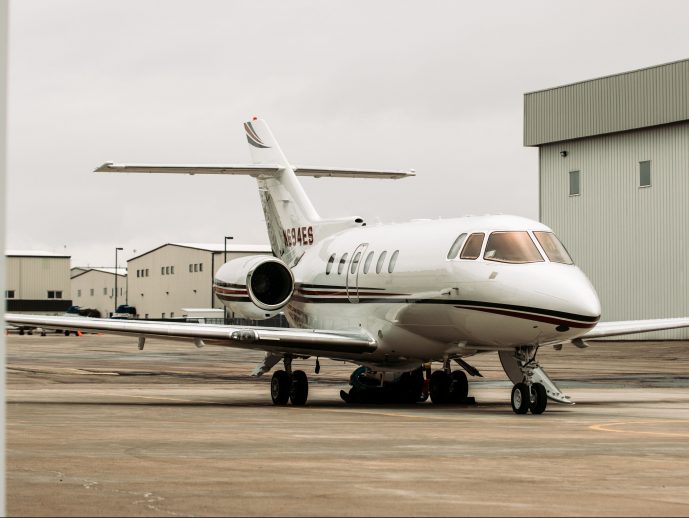Categories more
- Adventures (14)
- Arts / Collectables (13)
- Automotive (32)
- Aviation (10)
- Bath, Body, & Health (68)
- Children (5)
- Cigars / Spirits (21)
- Cuisine (15)
- Design/Architecture (16)
- Electronics (12)
- Entertainment (4)
- Event Planning (3)
- Fashion (41)
- Finance (8)
- Gifts / Misc (6)
- Home Decor (43)
- Jewelry (37)
- Pets (2)
- Philanthropy (0)
- Real Estate (11)
- Services (21)
- Sports / Golf (12)
- Vacation / Travel (52)
- Watches / Pens (13)
- Wines / Vines (21)
- Yachting / Boating (14)
How Hybrid Propulsion Systems Can Improve Private Jet Flying
Published
11/17/2023The landscape of private jet travel is currently experiencing a seismic shift, driven by remarkable strides in hybrid propulsion systems. Beyond the customary opulence of interiors, a transformative era is unfolding where the harmonious integration of traditional fuel and state-of-the-art electrical sources is reshaping the essence of private flying. This combination of established and avant-garde technologies enhances the luxurious aspects of private jet travel and the commitment to a future where efficiency and sustainability seamlessly coexist in high-end aviation experiences. Let’s take a look.
Pioneering Efficiency
Hybrid propulsion stands at the forefront of aviation innovation, ushering in a transformative paradigm shift by seamlessly integrating traditional jet fuel or sustainable aviation fuels with the cutting-edge power of electricity. This pioneering approach redefines the landscape of aircraft propulsion and introduces a level of efficiency that surpasses anything witnessed in conventional aviation. The groundbreaking feature of switching between energy sources, either in tandem or alternately, emerges as a game-changer, offering unprecedented flexibility and sustainability in private jet charter air travel. This dynamic capability boosts operational efficiency while reducing environmental impact, marking a monumental leap forward in the evolution of aviation technology.
Fuel Consumption Reduction
Wholeheartedly embracing hybridization in aviation heralds numerous advantages, with a pivotal highlight being the substantial reduction in fuel consumption. Exhaustive studies conducted by the National Academic Press in Washington shed light on the potential of this innovative technology to yield a noteworthy up to 5% decrease in fuel usage when compared to conventional flights. This significant achievement not only translates into tangible economic benefits but also aligns seamlessly with the overarching industry objective of mitigating the environmental impact associated with air travel. By striking a harmonious balance between efficiency and sustainability, hybridization emerges as a pivotal force driving positive change in the aviation landscape.
Diversifying the Energy Mix
Integrating electrical sources, including advanced technologies like batteries and fuel cells, represents a pivotal evolution in aircraft technology. A prominent contributor to this transformative landscape is Airbus, a key player in the aerospace industry, which recently unveiled a groundbreaking fuel cell-powered engine. This unveiling demonstrates the technological prowess of converting hydrogen into electricity and signifies a critical step toward diversifying the energy mix in aviation. By introducing such innovations, the industry is pushing the boundaries of what's achievable in the quest for more environmentally friendly and high-performance aircraft.
Insights from Electrification Milestones
The journey towards electrification commenced in 2010 when Airbus developed the world's first all-electric, four-engined aerobatic aircraft, CriCri. Subsequent milestones, including the E-Fan series and electric vertical take-off and landing (eVTOL), projects like Vahana and CityAirbus NextGen, paved the way for invaluable insights into serial hybrid-electric propulsion. The successor, E-Fan X, further solidified the feasibility and advantages of electric propulsion.
The Technological Landscape
Hybrid propulsion transcends the realm of mere buzzwords; it stands as a transformative force unequivocally shaping the future landscape of private travel technology. This revolutionary approach goes beyond conventional norms by seamlessly intertwining traditional and electric power sources, resulting in systems that redefine energy management. Fusing these power elements doesn't just stop at technological innovation; it catalyzes enhanced energy efficiency during flight. By navigating the intricate balance between traditional and electric power, hybrid propulsion systems herald a new era where optimal performance and sustainable aviation converge.
From Batteries to Fuel Cells
A sophisticated interplay unfolds between batteries and fuel cells at the heart of hybrid propulsion. Batteries, serving as reservoirs of stored electrical energy, collaborate seamlessly with fuel cells that ingeniously convert hydrogen into electricity. Together, this dynamic duo forms a versatile and responsive power system capable of adapting to the ever-changing demands of flight conditions. The synergistic integration of these two energy sources ensures optimal performance and highlights the adaptability of hybrid propulsion.
Navigating a New Horizon
Integrating hybrid propulsion systems marks a pivotal and transformative moment in the ongoing evolution of private jet technology. Beyond the opulent interiors that traditionally define luxury travel, the industry is experiencing a paradigm shift towards a more profound emphasis on sustainability, efficiency, and reduced environmental impact. This shift represents a fundamental reimagining of the private jet experience, where the combination of traditional fuel with advanced electrical sources propels private jet travel into uncharted territories. This creates a promising future where technological innovation takes center stage.
This shift is not merely about incorporating cutting-edge technology; it's a holistic commitment to ushering in a greener and more efficient era in private jet travel.
Sustainability and reduced environmental impact are not just passing trends but fundamentally reshaping the industry's ethos. Private jet manufacturers and operators are investing in research and development to create propulsion systems that enhance their aircraft's performance and contribute significantly to environmental conservation. This commitment is reflected in a dedication to minimizing carbon footprints, optimizing fuel efficiency, and exploring alternative energy sources to power private jets.
As we navigate this new horizon, the aerospace industry is actively redefining the possibilities of flight. The seamless integration of hybrid propulsion systems represents a technological leap. It serves as a beacon guiding private aviation toward a future where the skies are conquered and navigated with unparalleled precision and environmental care.
















